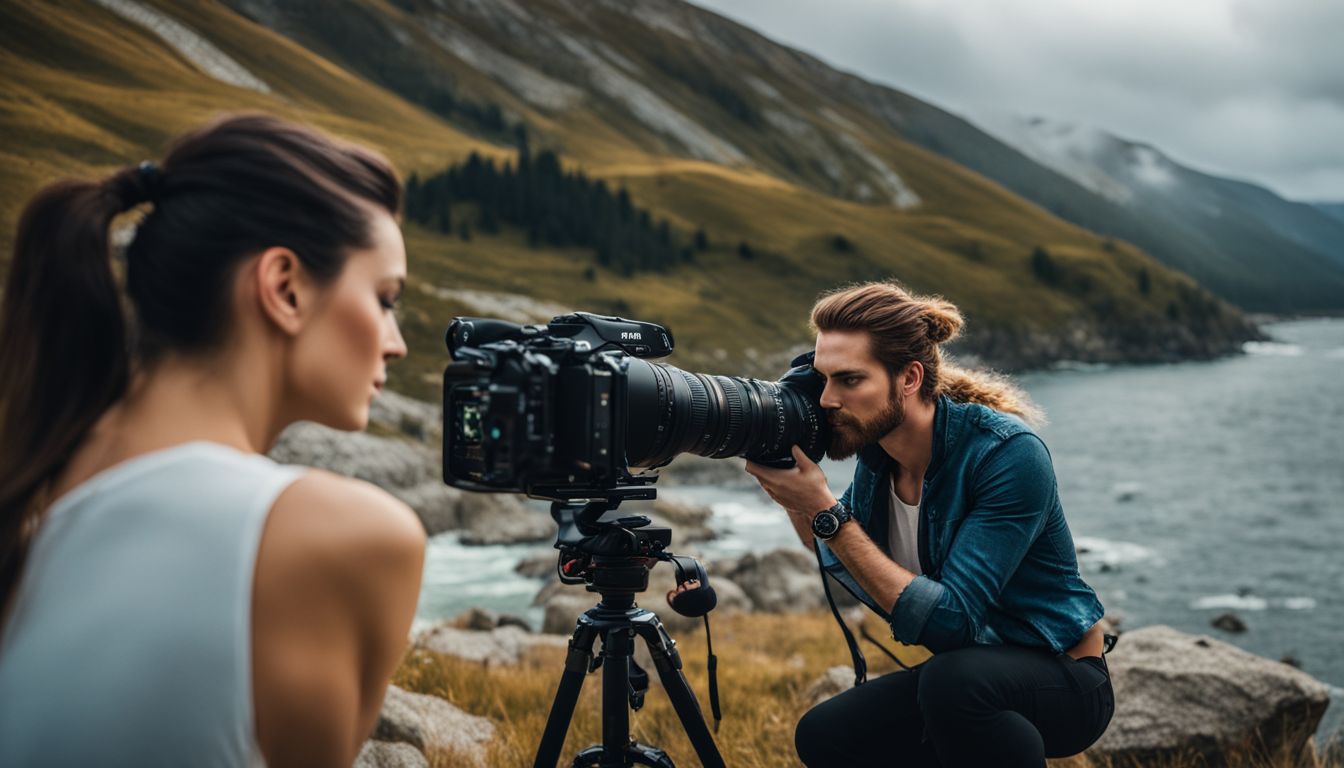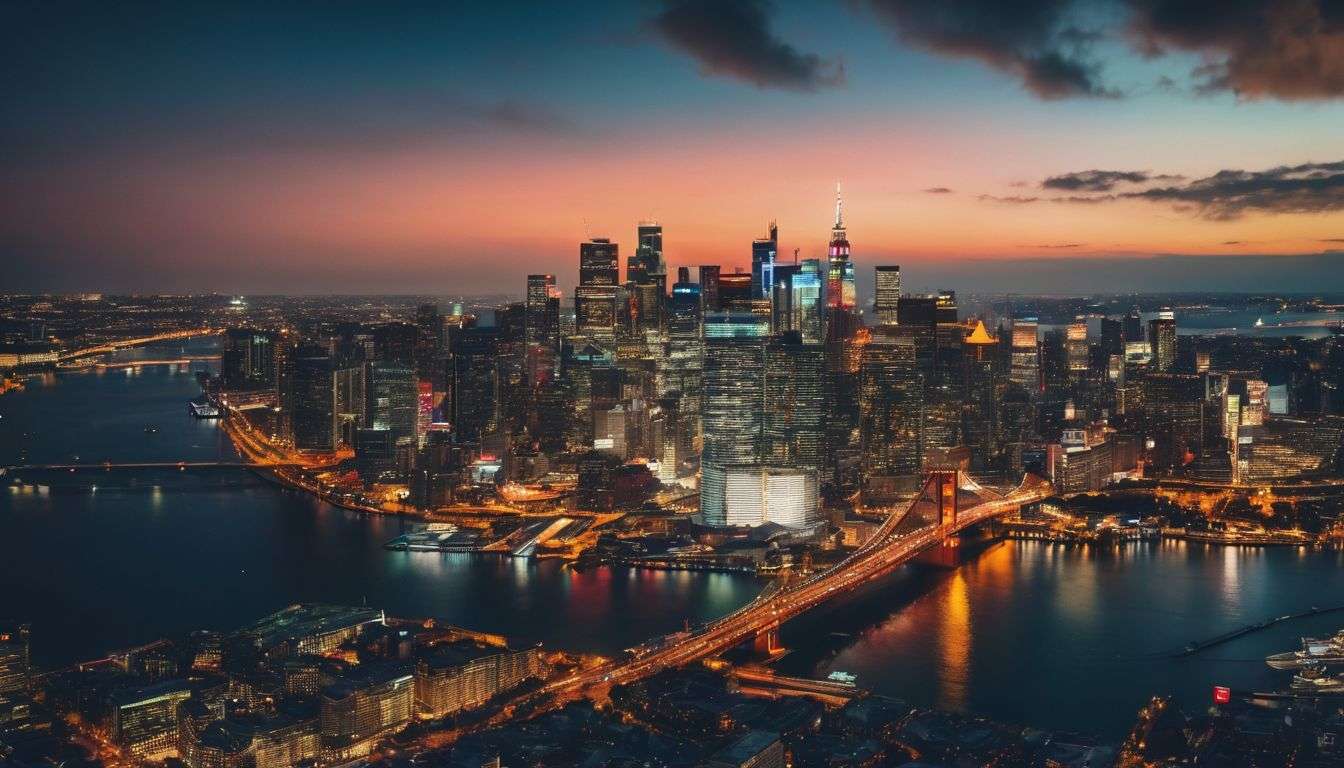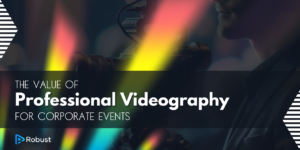Ever mused over how professional videographers manage to bag such stunning footage? It’s not just you – we’ve been on that very expedition ourselves. We’ve dug deep and found that mastering the art of videography is a bit like a fine Yorkshire Pudding recipe; it requires the perfect blend of technical savvy and creative spark.
This article will take apart those vital ingredients that make up exceptional videography skills, guiding you along your journey to acquire them yourself. Take this first step into an immersive world where ordinary videos are transformed into captivating visual tales, and let us help weave your narrative with skill and finesse.
Key Takeaways
- Videography skills encompass various elements such as video editing, cinematography, camera operation, lighting techniques, and more.
- These skills are crucial for enhancing storytelling abilities, facilitating effective video production, and ensuring high-quality footage and visuals.
- Essential skills every videographer should have include cinematography, video editing, camera operation, lighting knowledge, audio recording ability, problem-solving skills, and communication skills.
- Developing videography skills involves taking online courses for flexibility and expert instruction; practicing with different equipment and software to improve technical abilities; collaborating with other videographers to learn from their experiences.
Definition and Examples of Videography Skills

Videography skills encompass various elements such as video editing, cinematography, camera operation, lighting techniques, and more.
Videography
Videography is a skill that takes many forms. It’s about using a camera to record events and make films. This could be for TV shows, movies or even weddings! Camera settings, light balance, how to set up shots – these are all things a good videographer needs to know.
But it doesn’t stop there. After filming comes the editing part. We trim clips, add colours and put in special effects to make everything look its best. Yes, videography is about more than just hitting the record button; it’s an art that asks us for our creativity, technical know-how and physical skills!
Video Editing
Video editing is a main part of making videos. We use it to improve the visuals and stories in the video. It can add special things that were not there when we filmed. This skill uses tools like Final Cut Pro or Adobe Premiere Pro.
A good video editor knows how to put clips together, change colours, and add effects.
Our job as videographers is also about solving problems during editing. Sometimes, a clip might not fit well with others. Or maybe the sound is off from the video. Video editing lets us fix these issues before anyone sees our work! With this skill, videographers can be sure their videos are the best they can be.
Video Production
In video production, we set up the stage. We use cameras, lights and sound tools. We also guide the people in front of these tools. To do this well, good planning is key. This involves setting goals and doing research.
It’s also important to write a script before shooting starts. By doing so, we have a roadmap for our work which helps us capture high-quality footage and visuals that tell strong stories!
Cinematography
Cinematography is a key skill in making videos. It deals with how to use the camera for the best results. By learning cinematography, we learn how to take good shots. This includes knowing where to place the camera and how to move it.
We also learn about lighting and how it changes the feel of a video. Having good skills in cinematography helps us make videos that look professional and tell a story well.
Camera Operation
We use camera operation skills when we make a video. This skill is about knowing how to set up and use the camera right. We must pick the best spots. We have to know how to move fast or slow, close or far from what we film.
With good skills, we can make sure that every part of the video looks great! We also need to understand things like exposure and composition for a pro look in our videos. That’s why it’s so important that we learn these skills well.
Lighting
Lighting is a big part of videography. It helps to set the mood and feel of the video. You can use it to make a scene look bright and happy or dark and scary. Good lighting also makes sure everyone and everything in your video looks clear, not too dark or washed out.
To get good at lighting, you need to know about different types of lights and how they work. You also need to learn how to use shadows and light together for the best effect. This takes time, but with practice, it gets easier.
Importance of Videography Skills

Videography skills are crucial for enhancing storytelling abilities, facilitating effective video production, and ensuring high-quality footage and visuals.
Enhances storytelling abilities
Good videography skills help us tell stories better. We can use camera shots and angles to add depth to our tale. We can show, not just tell, what is going on. By using light well, we bring out the best details in each frame.
Sound recording helps us make the story richer too. Every hum and buzz adds life to a moment in time that we capture with our camera. Plus, creative video editing lets us put scenes together in a way that moves people’s hearts or makes them think hard about something important.
So you see, mastering videography skills gives every story we choose to tell more power and punch!
Enables effective video production
To create effective videos, videography skills play a crucial role. These skills enable videographers to capture high-quality footage and produce visually engaging content. By understanding camera operation, lighting techniques, and sound recording, videographers can ensure that every scene looks professional and visually appealing.
Additionally, having expertise in video editing allows them to enhance the storytelling aspect of their work by manipulating visuals and adding special effects or graphics during the post-production phase.
With these skills, videographers can bring their creative vision to life and deliver impactful videos that captivate their audience.
Ensures high-quality footage and visuals
High-quality footage and visuals are essential in videography to captivate the audience and convey the intended message effectively. By using proper camera settings, composition techniques, and exposure control, videographers ensure that their videos have clear and crisp images.
They also pay attention to lighting conditions, selecting the right equipment for each scene to create a visually appealing atmosphere. In post-production, they use editing software to enhance colors, apply filters or effects if necessary and maintain consistency throughout the video.
These skills guarantee that viewers receive a visually breathtaking experience while watching the final product.
Essential Skills Every Videographer Should Have
As videographers, there are certain skills that we should have in order to be successful. These skills include:
- Cinematography: Knowing how to capture visually appealing shots and create a desired mood or atmosphere through framing, composition, and camera movement.
- Video editing: Being proficient in video editing software like Final Cut Pro or Adobe Premiere Pro to assemble footage, add effects, transitions, and enhance the overall storytelling.
- Camera operation: Understanding camera settings, exposure, and focus to capture high-quality footage that is properly exposed and in focus.
- Lighting: Having knowledge of lighting techniques and equipment to effectively use natural or artificial light to enhance the visual composition and set the desired mood.
- Audio recording: Being able to record clear and crisp audio using microphones and sound recording equipment for interviews or capturing ambient sounds.
- Problem-solving skills: Being able to think on your feet and troubleshoot technical issues that may arise during shoots or post-production.
- Communication skills: Effectively communicating with clients, team members, or talent during shoots to ensure everyone is on the same page and working towards a common goal.
Developing Videography Skills
To develop videography skills, take online courses, practice with different equipment and software, and collaborate with other videographers.
Taking online courses
Taking online courses is a great way to develop videography skills. Here are some benefits:
- Flexibility: Online courses allow you to learn at your own pace and fit learning around your schedule.
- Diversity of courses: There are many online platforms that offer a wide range of videography courses, from beginner to advanced levels.
- Expert instruction: Online courses are often taught by experienced professionals who can provide valuable insights and guidance.
- Practical assignments: Many online courses include hands-on assignments that help you apply what you’ve learned in real-world situations.
- Networking opportunities: Online courses often have discussion forums or communities where you can connect with other aspiring videographers and share knowledge and experiences.
- Cost-effective: Online courses are generally more affordable than traditional in-person classes or workshops.
Practicing with different equipment and software
To develop videography skills, it’s important to practice using different equipment and software. This helps us become familiar with the tools of the trade and improve our technical abilities. Here are some ways to practice:
- Experimenting with different types of cameras, such as DSLRs or mirrorless cameras, to understand their features and capabilities.
- Learning how to operate camera settings, like aperture, shutter speed, and ISO, to achieve the desired look in our videos.
- Trying out different lenses and understanding how they affect focal length and depth of field.
- Getting hands – on experience with video editing software like Final Cut Pro or Adobe Premiere Pro.
- Practicing importing footage, organizing files, cutting clips, adding transitions or effects, and exporting finished videos.
- Experimenting with lighting setups using different types of lights. Understanding how different lighting techniques can enhance the mood or narrative of a video.
- Recording audio using external microphones and learning techniques for capturing clear and crisp sound.
- Mixing soundtracks with dialogue and music during post – production to create a balanced audio mix.
Collaborating with other videographers
Collaborating with other videographers is a great way to develop and improve your videography skills. Here are some ways you can collaborate with others:
- Join online communities or forums where videographers share tips, advice, and resources.
- Attend workshops or events where you can meet and network with other videographers.
- Take part in collaborative projects or video challenges to practice your skills and learn from others.
- Offer to assist experienced videographers on their shoots to gain valuable hands-on experience.
- Share your work with other videographers and ask for feedback or constructive criticism.
- Collaborate on a creative project with other videographers to push your limits and explore new ideas.
Showcasing Videography Skills
Including relevant skills in resumes and cover letters, demonstrating skills during interviews, and building a portfolio showcasing videography work are essential steps to showcase your videography skills.
Including relevant skills in resumes and cover letters
To make your resume and cover letter stand out, it’s important to include the following videography skills:
- Videography: Showcase your experience and knowledge in filming and capturing high-quality footage.
- Video Editing: Highlight your proficiency in using software like Final Cut Pro or Adobe Premiere Pro to edit and enhance videos.
- Camera Operation: Emphasize your ability to operate different types of cameras effectively.
- Lighting: Mention your expertise in using lighting techniques to create the desired mood and atmosphere.
- Sound Recording: Discuss your skills in recording clear and high-quality audio during video shoots.
- Problem-solving Skills: Highlight your ability to troubleshoot technical issues that may arise during filming or editing.
- Communication Skills: Show that you can work well with clients, directors, and other team members to understand their vision and bring it to life.
- Creativity: Demonstrate your imaginative approach to capturing shots and framing scenes in visually appealing ways.
Demonstrating skills during interviews
During interviews, it’s important to showcase your videography skills. Here are some ways you can do that:
- Bring a portfolio showcasing your best videography work.
- Discuss specific projects you’ve worked on and the roles you played in them.
- Talk about your experience with camera operation, lighting techniques, and sound recording.
- Explain any post – production skills you have, such as video editing or color grading.
- Share examples of how you’ve used storytelling and shot composition to enhance videos.
- Mention any specialized areas you’ve focused on, like corporate branding videos or social media content creation.
Building a portfolio showcasing videography work
To showcase your videography skills, it’s important to have a portfolio that demonstrates your work. Here are some ways to build a strong portfolio:
- Choose your best work: Select your top videos that showcase different aspects of videography, such as storytelling, shot composition, lighting techniques, and sound recording.
- Include a variety of projects: Feature a range of projects you have worked on, such as weddings, events, commercials, or short films. This will highlight your versatility and ability to adapt to different styles and requirements.
- Show before-and-after examples: Include both the raw footage and the final edited version of a video to showcase your video editing skills. This can help potential clients or employers see your ability to transform raw footage into a polished final product.
- Provide context for each project: Write a brief description for each video in your portfolio. Explain the goals, challenges faced during production, and any special techniques used. This will give viewers insight into your creative process and problem-solving skills.
- Organize it well: Create a website or online platform where you can display your portfolio effectively. Use categories or tabs to group similar projects together. Make sure the layout is clean and easy to navigate.
- Update regularly: Keep adding new projects to your portfolio as you complete them. This shows that you are actively working on new content and staying up-to-date with the latest industry trends.
Conclusion
In conclusion, a videography skill is the ability to capture and create compelling videos using various techniques such as filming, editing, and storytelling. It involves knowing how to operate cameras, set up lighting, record audio, and edit footage.
With these skills in hand, videographers can create visually stunning videos that captivate audiences and convey powerful messages. So if you’re passionate about visual storytelling and have a knack for technology and creativity, developing your videography skills could open doors to exciting opportunities in the world of video production.
Are Videography Skills Essential in All Three Types of Filmmaking?
Videography skills play a crucial role in all three types of filmmaking. Whether it’s narrative, documentary, or experimental filmmaking, the ability to capture high-quality visuals on camera is essential. From framing shots to understanding lighting techniques, videographers aid in telling engaging stories, creating impactful documentaries, and pushing creative boundaries in experimental cinema. In all three types of filmmaking, videography skills form the backbone of visually striking and immersive experiences on the silver screen.
Can I Develop Videography Skills on My Own?
Developing videography skills on your own is entirely possible. With self taught videographer techniques, you can learn the ins and outs of capturing and editing videos. Online tutorials, practice, and experimentation will help improve your skills. Dedication and passion are key to becoming a skilled videographer without formal training.
What Skills Should a Videographer Possess to Use Different Types of Equipment?
To effectively use different types of videographer equipment options, one must possess a range of skills. A videographer should have a solid understanding of camera operation, lighting techniques, and audio recording. Additionally, they should be able to adapt to various equipment setups, such as gimbals, drones, and different lenses, ensuring they can capture high-quality footage in any situation.
FAQs
1. What is a videography skill?
A videography skill is the ability to capture and record videos using a camera or other recording devices.
2. Why is videography important?
Videography skills are important because they allow you to create high-quality videos for various purposes, such as filmmaking, documentation, advertising, or personal projects.
3. Can anyone learn videography skills?
Yes, anyone can learn videography skills with practice and dedication. It’s helpful to start with basic equipment and gradually improve your techniques through learning and experience.
4. What are some key elements of videography skills?
Key elements of videography skills include framing shots, controlling exposure and focus, capturing smooth movements, editing footage effectively, understanding lighting conditions, and utilizing proper audio techniques.
5. How can I improve my videography skills?
You can improve your videography skills by practicing regularly, studying different filming techniques (e.g., composition), experimenting with different angles and perspectives, learning about video editing software, tools, tips, and tricks, and seeking feedback from others in the field of cinematographers and videographers






